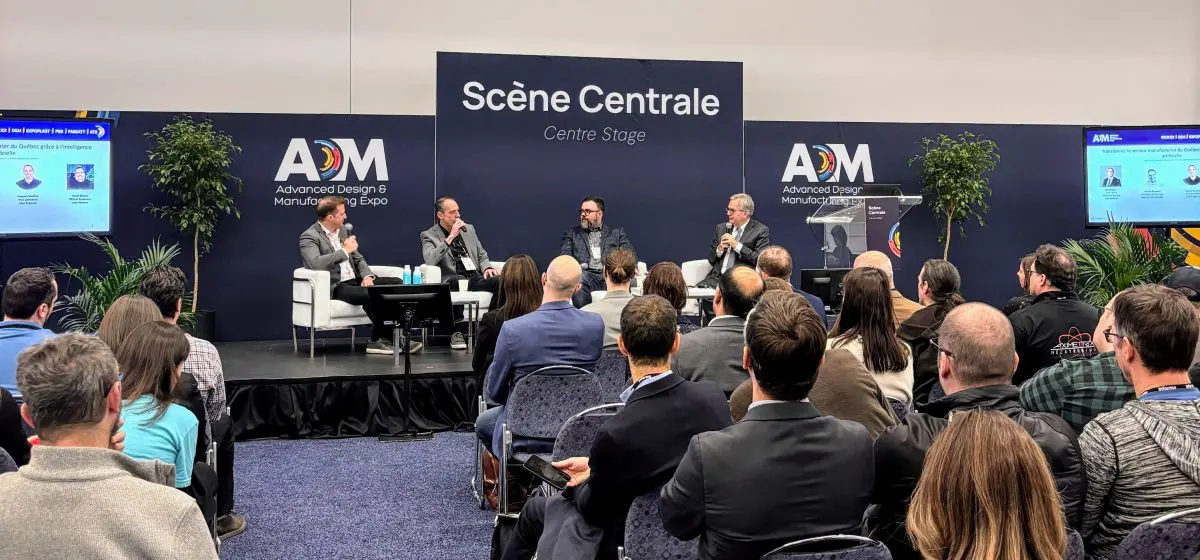AI: A Catalyst for Change in Manufacturing
Quebec’s manufacturing sector faces significant challenges in competitiveness and productivity, calling for bold transformations. Among the most promising solutions, artificial intelligence stands out as a powerful tool to modernize processes, enhance product quality, and meet rising market demands.
Unlocking AI’s Potential in Quebec
Despite its promise, AI adoption in Quebec’s manufacturing sector remains limited. Kevin Moore of Vooban highlighted this hesitation: “There is significant interest in AI, but many companies still see it as a leap into the unknown.” Concerns about risks and costs hinder progress, leaving Quebec lagging behind other regions where AI investments are far more substantial.
As Yannick Bessette from Beslogic noted, “The U.S. invests 25 times more in AI than Canada, despite having only 10 times our population.” This discrepancy underscores the urgent need for Canadian companies to increase investments in AI to maintain their competitive edge.
Yet, the potential is undeniable. Hugues Mailhot of ExplorAI remarked, “More entrepreneurs are recognizing that AI can improve product quality or reduce costs. The fear of missing out is beginning to outweigh the fear of risk.”
However, realizing this potential comes with challenges, including poor data quality, low digital literacy, and resistance to change. Addressing these obstacles requires immediate and concerted action.
Four Keys to Successful AI Integration
According to the panelists, successfully implementing AI projects hinges on four fundamental pillars:
- Business Opportunity: Clearly define the challenges to address upfront to ensure a solid return on investment.
- Human Engagement: Engage employees early on to foster understanding and support, even in the face of initial resistance.
- Data Preparedness: Ensure data is high-quality, well-structured, and ready for AI applications.
- Financial Support: De-risk investments to make AI more accessible to businesses.
“Start by identifying a business problem and classify use cases based on their return on investment.”
– Kevin Moore, Vooban
Avoiding Common Pitfalls in AI Projects
The panel also highlighted frequent mistakes to avoid in AI implementation. Poor project preparation often tops the list. Kevin Moore emphasized, “Employees often hold critical insights that are overlooked at the project’s start, leading to costly surprises during development or deployment.”
Hugues Mailhot added, “Projects cannot rely solely on a VP’s support. Employees need to be involved; otherwise, long-term adoption is at risk.”
Finally, Yannick Bessette warned, “AI must serve business processes. Identifying the right problem from the outset is crucial to avoid misaligned solutions.”
The Future of AI in Quebec’s Manufacturing Sector
Quebec has the potential to become a global leader in AI, but there is still much work to be done. Ironically, despite a strong scientific legacy, AI adoption in Quebec lags behind. Kevin Moore noted, “Strangely, we have two of AI’s three founding fathers in Canada, yet we’re among the places with the least trust in AI.”
While pioneers like Yoshua Bengio and Geoffrey Hinton have established Canada as a hub of AI research excellence, industrial deployment has not followed suit. Kevin Moore envisions a brighter future: “My dream is for AI to be implemented across the country, reclaiming Canada’s position among global leaders.”
For Hugues Mailhot, data utilization will be key: “Companies need to leverage their data to create value and accelerate growth.” Yannick Bessette, meanwhile, imagines a fully automated future: “I see factories entirely self-managed, with predictive maintenance and hyper-personalized production powered by AI and robotics.”
Quebec’s strong AI foundation provides a solid base to build a world-class manufacturing industry, provided investments and adoption efforts align with this ambitious trajectory.
Scale AI: Driving AI Adoption in Manufacturing
Scale AI plays a pivotal role in integrating AI within the manufacturing sector, a critical industry for both Quebec and Canada. With over 120 funded projects across various sectors—many focused on manufacturing—Scale AI helps local companies identify success factors for their projects and connects them with top-tier technology partners.
In parallel, Scale AI actively demystifies AI and reduces financial risks, enabling faster and more informed adoption. Through these initiatives, businesses can tap into the expertise of local AI professionals to enhance productivity and secure a competitive position on the global stage.




